FEATURES • DESTINATIONS
Alchemy of the Earth:
Bisma Eight’s Balanced
Revolution
Words & Photography by The Punch
Where nature spectacularly grows in a feisty tangle, Bisma Eight Ubud takes shape as a real refuge. Enveloped in verdant foliage, its inviting accommodations mix comfort with the atmosphere of Ubud and traditional Balinese design, making it an outstanding hotel on the island. Greater than its detailed local craftsmanship, Bisma Eight takes a proactive stance on sustainability, from filtering rainwater and converting organic waste into fertilizer to producing their eco-enzyme–a multi-purpose, in-house solution. Their dedication to ecological balance can also be seen in their organic garden and advanced waste treatment system.
The resort’s restaurant, Embers, celebrates Mediterranean raw food with minimal processing and a zero-waste approach, while Bisma Eight manages B3 waste such as batteries and oils with responsibility. The team embodies the soul of the resort, the driving force behind Bisma Eight’s ongoing journey toward the greater good.
Weda Sugama is Bisma Eight’s General Manager, a resourceful leader whose exceptional management skills and ideas, combined with a deep understanding of the high-end luxury property market, make him a standout in his field. Then, there's the driven Nyoman Mudita, from Tabanan, Bali, who serves as the Chief Engineer at Bisma Eight. His role involves overseeing the resort’s technical operations and ensuring the smooth implementation of sustainable practices in the resort’s infrastructure. Putu Satrya Wibawa, from Kepal, Mengwi, is the Executive Housekeeper. He manages the housekeeping department, making sure that the hotel’s commitment to sustainability is seen in every detail of the guest experience.
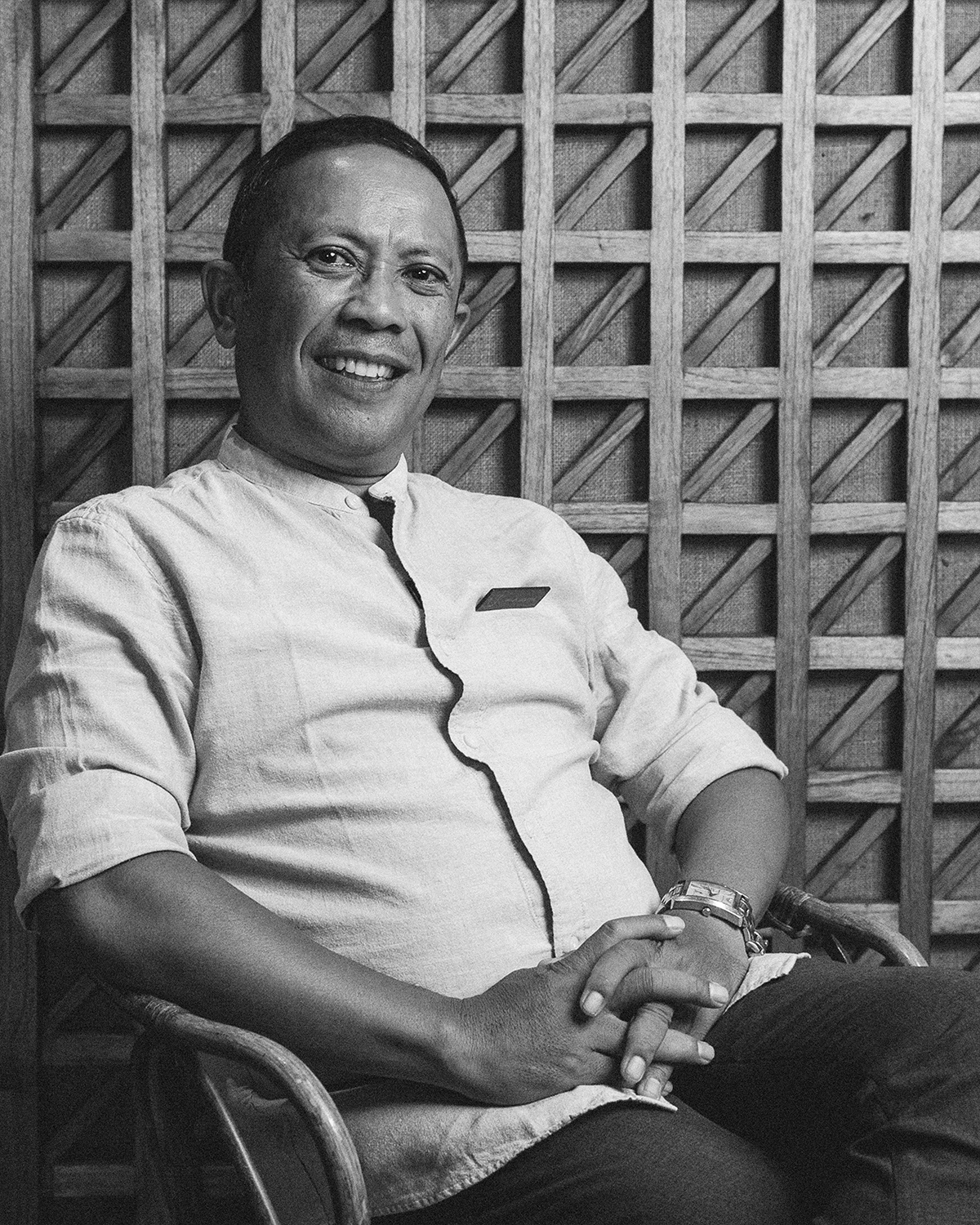
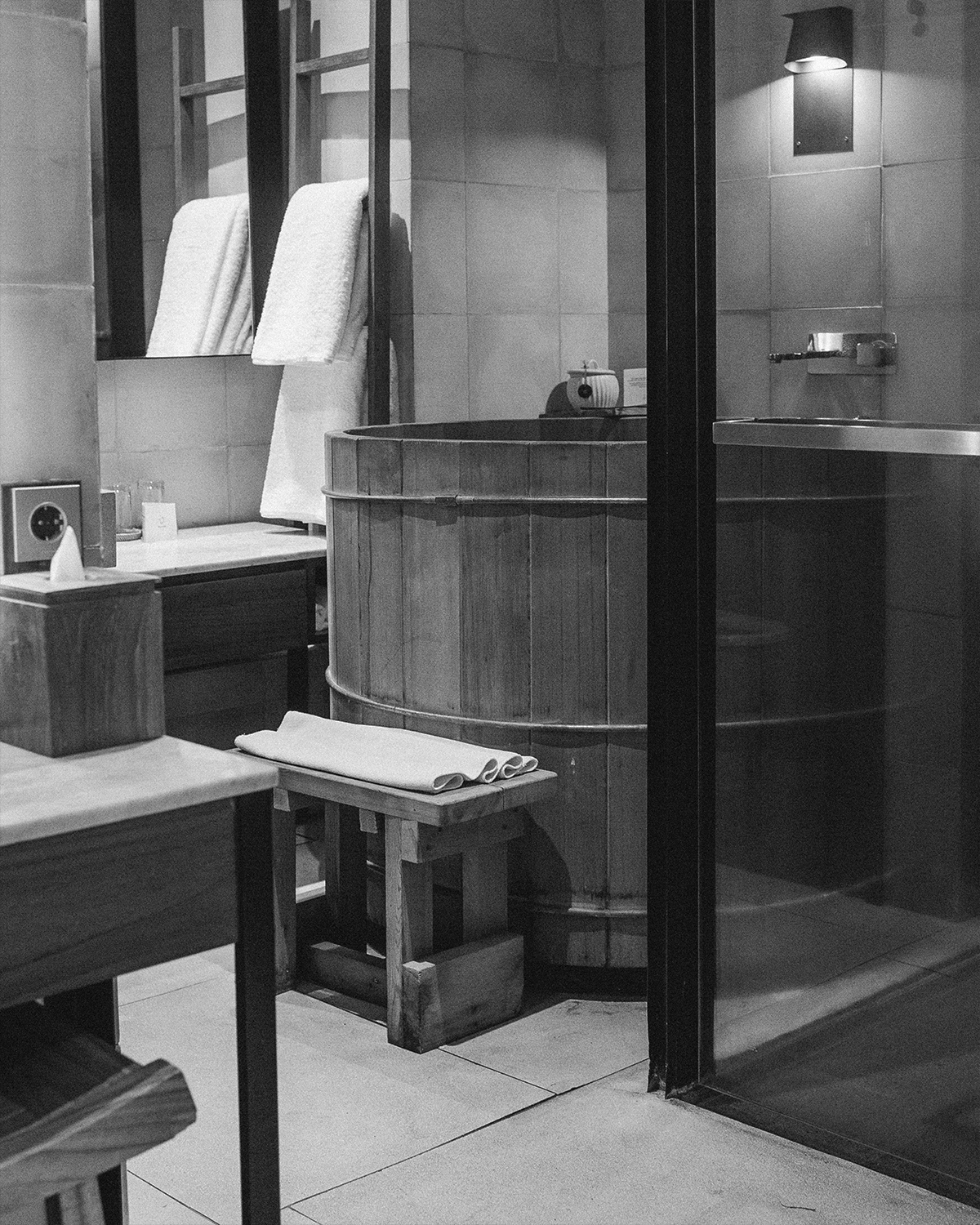
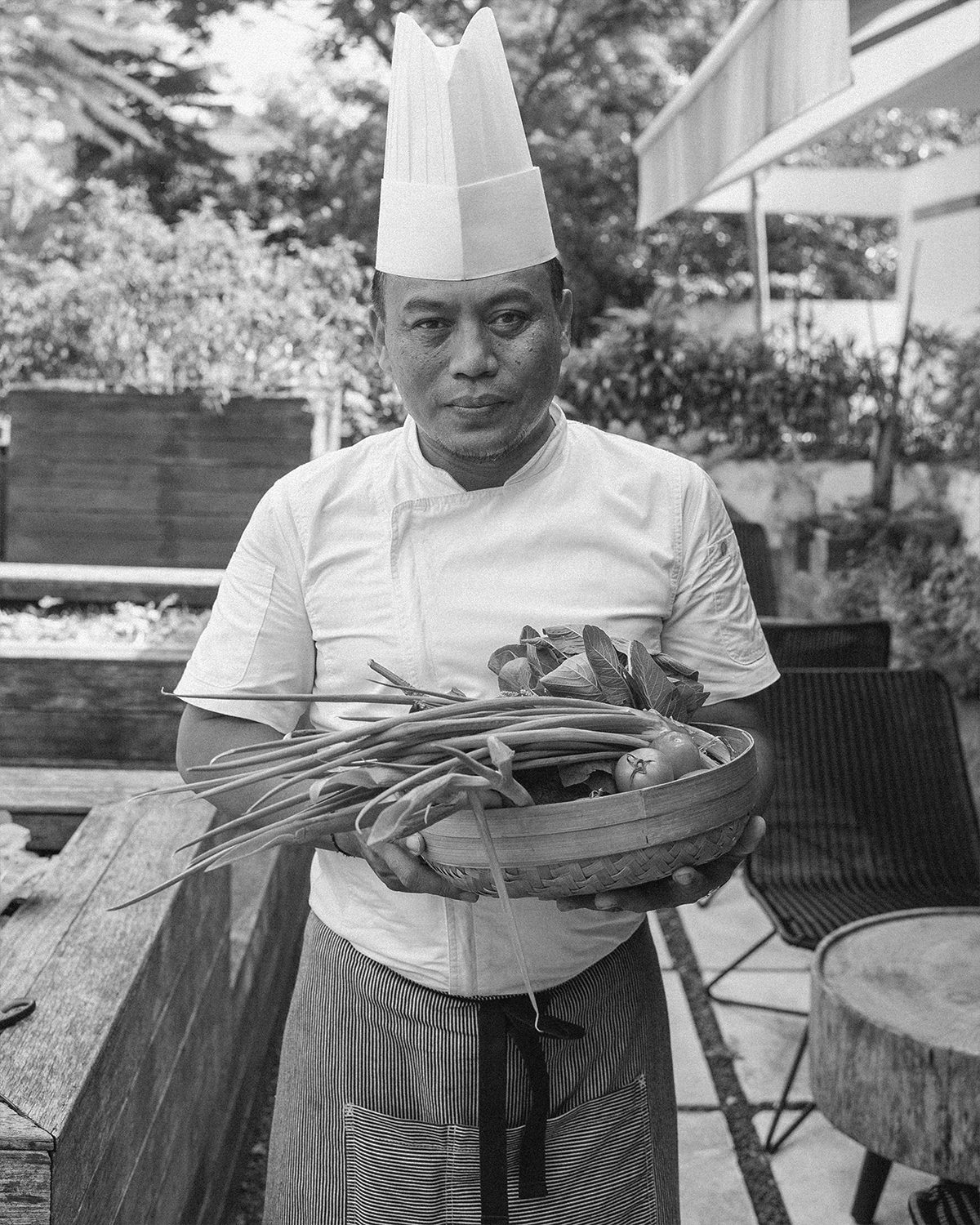
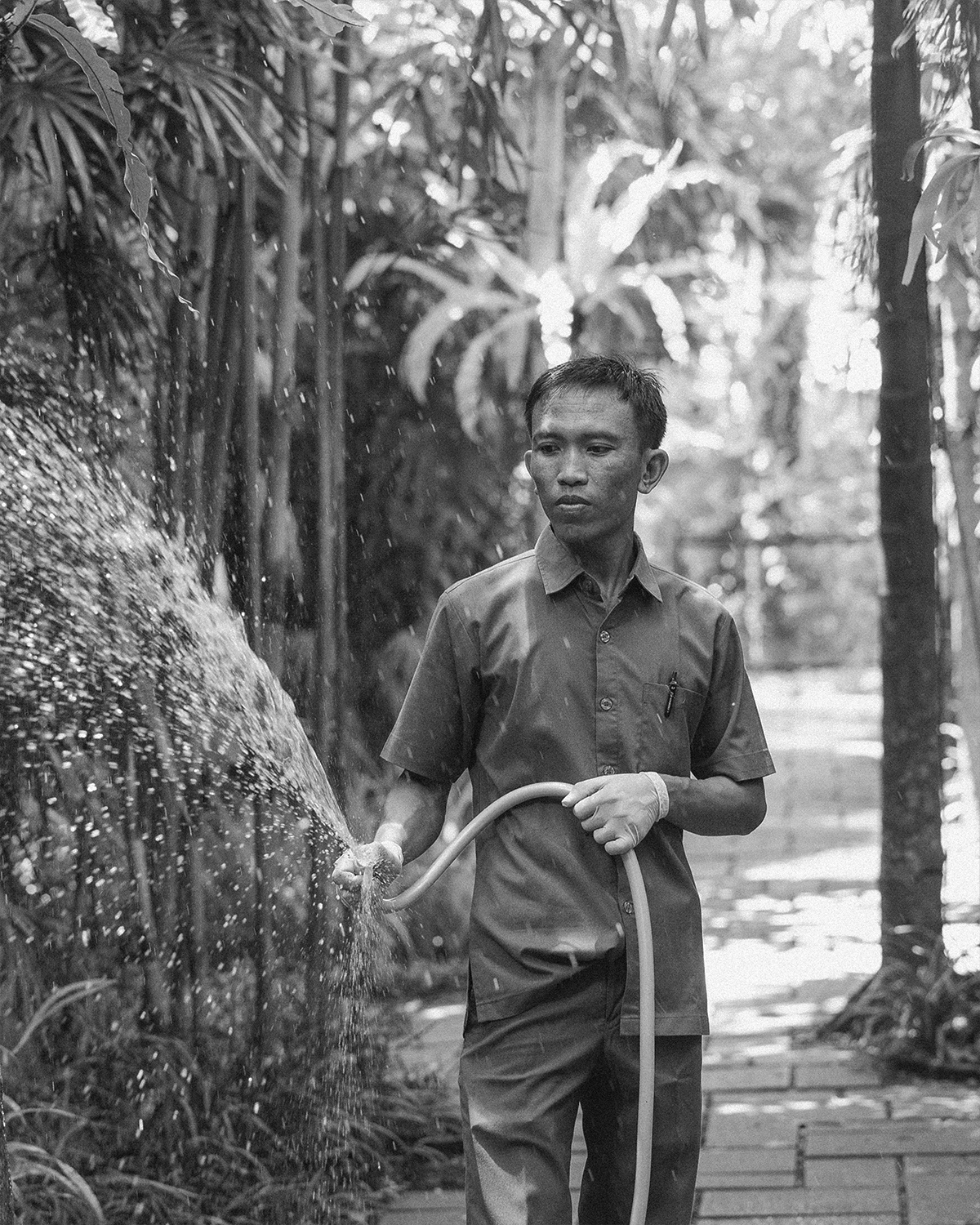
ECOSPHERE OF EXCELLENCE
In the face of climate change’s urgent threat to future generations, Bisma Eight rises to the challenge with a strong commitment to do better. The resort’s waste management practices show dedication: rather than discarding waste, they transform it into eco-enzymes and compost, harnessing the power of bio-pore systems. This proactive approach mitigates environmental impact while cultivating a culture of responsibility and innovation.
At Bisma Eight, every resource and ingredient finds its place within the environment’s existing network. Organic waste is transformed into a rich fertilizer that supports their farm, reinforcing zero waste. By developing meaningful partnerships with local Balinese farmers, the resort creates a flow between the farm’s harvest and the restaurant’s demands. Through these practices, Bisma Eight’s sustainability is in its day-to-day operations, embracing a cycle that honors and enriches the environment.
ON-SITE BIO PORE INFILTRATION SYSTEM
The bio-pore system facilitates the transformation of rainwater and garden waste into an indispensable resource. Rainwater flows into the bio pore, mingling with garden leaves that decompose into rich compost. This dynamic process tends the soil, maintaining its quality and vitality, which in turn sustains the burgeoning garden.
IN-HOUSE ECO-ENZYME
In the heart of the resort’s operations, a remarkable eco-enzyme gains momentum. Crafted in-house, this versatile elixir is made from kitchen and bar remnants: vibrant fruit peels and leftover vegetables. Through the alchemical process of fermentation, these discarded treasures transform into a powerful, multi-purpose liquid. This eco-enzyme is more than just a byproduct; it evolves into a force for environmental responsibility. It serves as a rich, organic fertilizer that feeds the garden’s greenery, an effective, natural cleaning agent for the hotel’s pristine spaces, and a treatment for the surrounding villas. Every drop illustrates Bisma Eight’s mission to unify innovation with nature’s cycles, making sure that nothing goes to waste and every resource is cherished.
WATER TREATMENT AND B3 WASTE SYSTEM
At Bisma Eight, the devotion to environmental integrity can be seen through its waste treatment system. They rigorously adhere to Bali Governor Regulation No. 16 of 2016, making sure their wastewater undergo thorough treatment. The purified water then nurtures the grounds and fills the serene pond gracing the lobby.
In handling B3 waste–batteries, lamps, oils, and battery water–the resort orchestrates a precise and structured process. They store, transport, and manage these materials with an emergency response framework. Partnering with vendors holding the requisite transportation permits makes sure that waste reaches approved processing facilities. The Environmental Agency has authorized their temporary storage solutions, aligning with the Minister of Environment and Forestry Regulation No. 6 of 2021, showing their commitment to best practices.
CLOSING THE WASTE LOOP
At Bisma Eight, managing organic waste is an artful practice. They attentively sort waste, directing what can become eco-enzymes to specialized processes and composting the rest. Using eco-enzymes to accelerate decomposition, they produce fertile compost after three months that is ready for harvest. In addition to dry compost, they collect “air lindi,” a liquid byproduct that helps maintain compost moisture. Both compost and air lindi are used to nourish plants, while non-organic waste is responsibly handled by a local vendor to avoid landfills. This comprehensive approach closes the loop and enriches their garden with every bit of organic waste.
ORGANIC GARDEN-TO-TABLE
In a world dominated by chemicals, opting for natural products is important. Unlike their synthetic counterparts, which harm ecosystems and degrade the environment, natural products protect human health and enhance the quality of life. They act as guardians of the planet, preserving it for future generations. At Bisma Eight, this philosophy flourishes in their carefully tended organic garden, a source of fresh produce that enhances the guest experience. Ingredients for the menu mostly come from this garden, while select vendors like Silasarta in Bedugul provide the additional essentials.
The garden supports a sustainable cycle, turning waste into compost and eco-enzymes to nourish the soil and grow vegetables. The passion for organic farming is evident in their restaurant–Embers–where fresh Mediterranean ingredients are assembled to highlight local natural flavors. Every scrap from preparation finds new life, repurposed into compost or animal feed through close collaboration with local communities. This thoughtful cycle reduces food waste to nearly zero–celebrating nature’s balance and ecological coexistence.
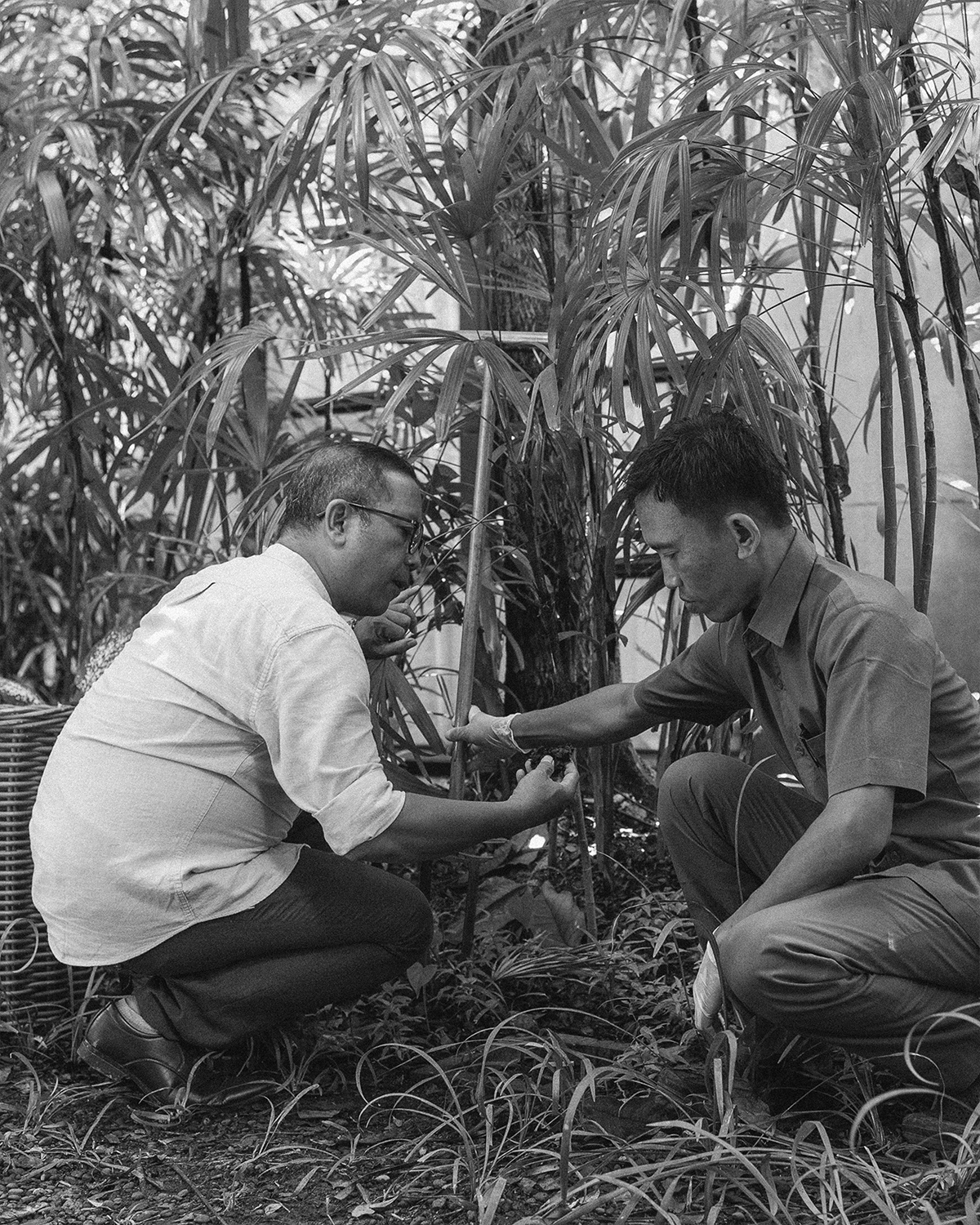
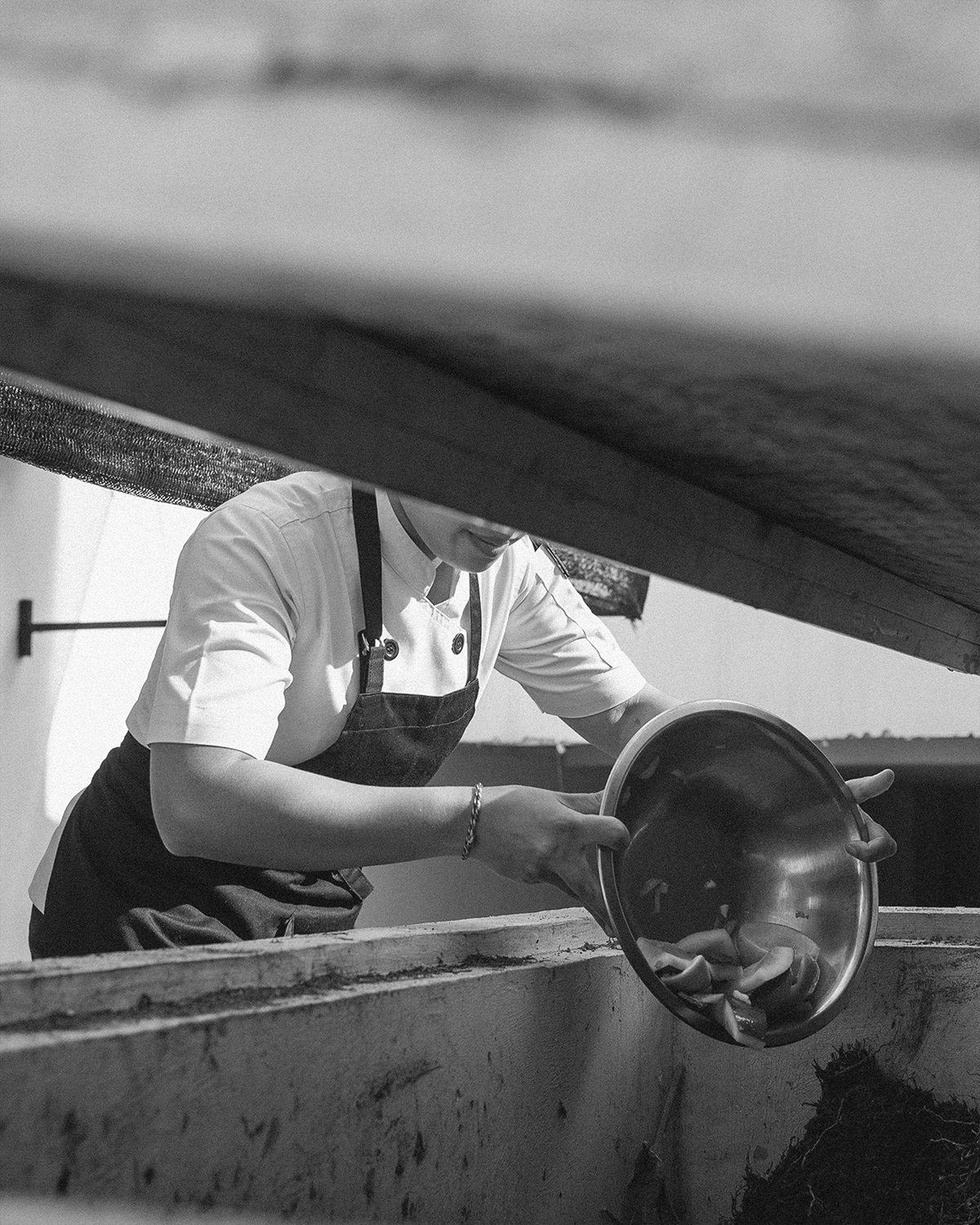
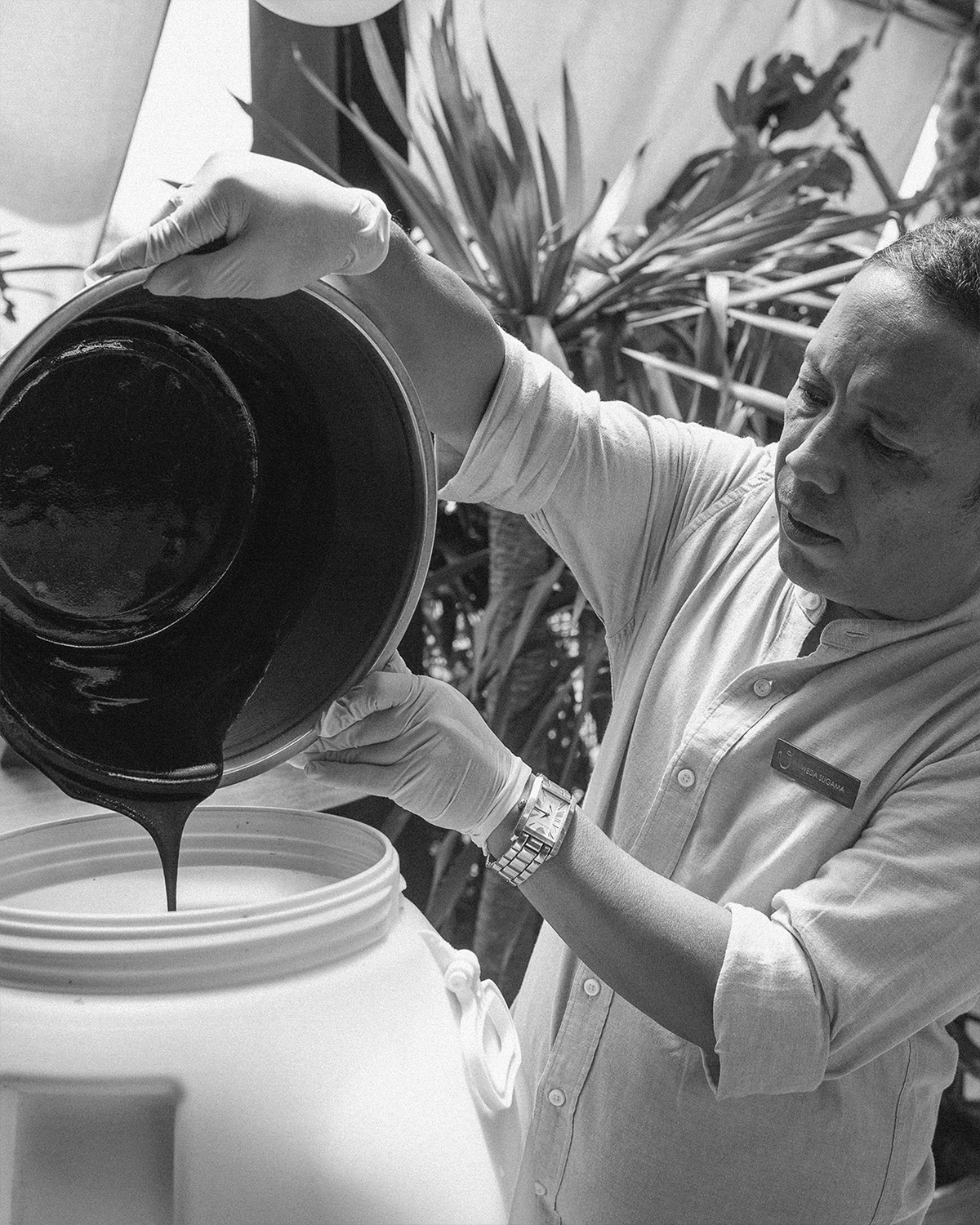
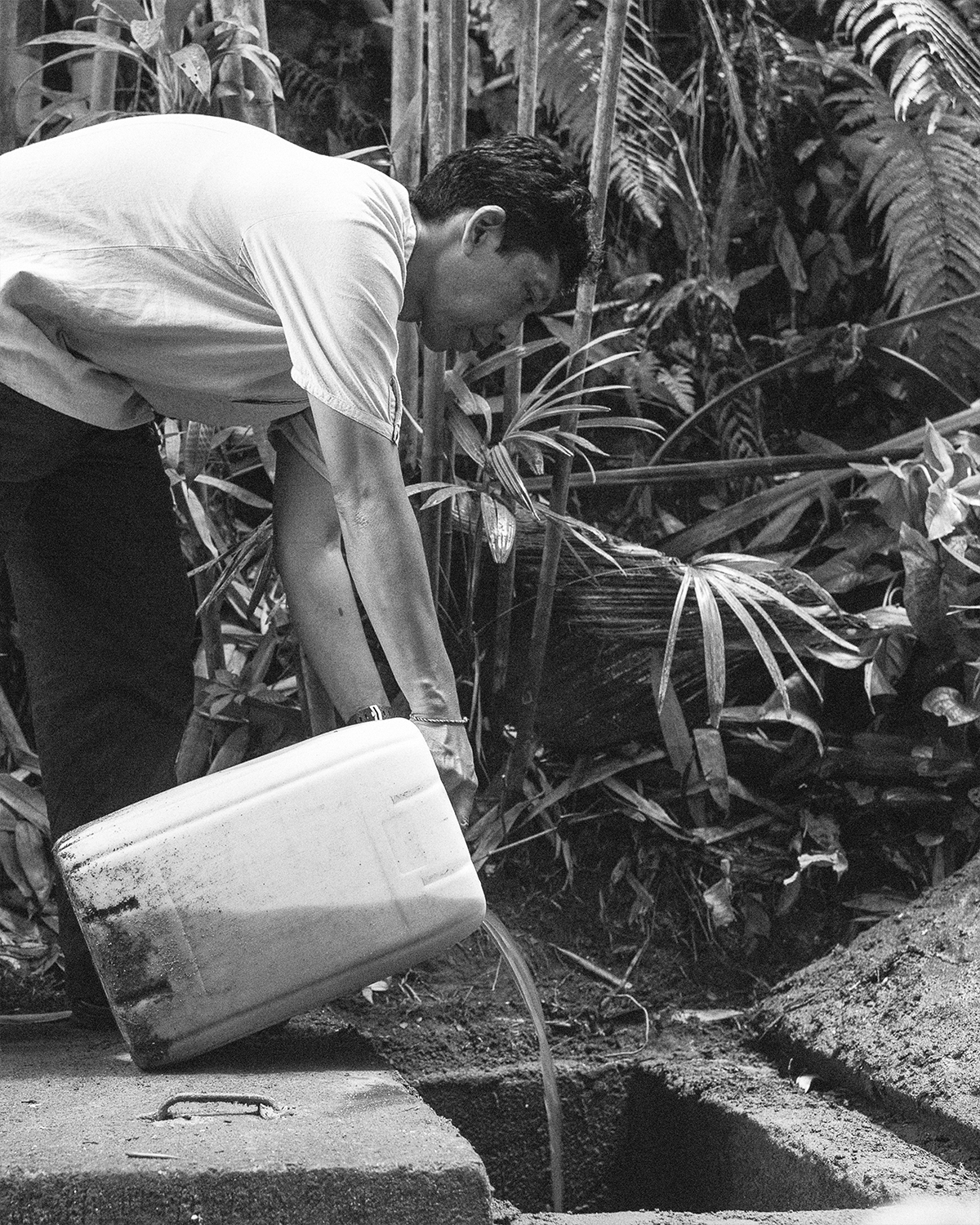
FROM PEEL TO POTION
At Bisma Eight, the journey of peels turns into a story of creativity and good. They begin their adventure as discarded leftovers from the fruits, only to be reborn through a scrupulous process. Collected peels are placed in jars with brown sugar, where natural yeasts go through a seven to 10-day fermentation, turning them into tangy probiotics.
The alchemy continues as the peels are distilled into alcohol using specialized equipment. The initial yield, around 30% alcohol, undergoes a second distillation to reach a refined 40% concentration. Meanwhile, the leftover peels take on a new life as charcoal, which finds its place as a flapper and drink coloring in the kitchen. This charcoal, ground into a fine powder, along with pineapple pepper made from the remaining fruit, garnishes the final creations. All these elements come together to create distinctive, zero-waste cocktails that tell a narrative of imagination and sustainability.
BISMA EIGHT'S LARGER MISSION
Each small transformation is a step toward a larger mission–one that reimagines what waste can become and how resources can serve not only the resort but the community and environment at large. By taking on better practices, Bisma Eight furthers its operations and inspires others to follow suit. This balanced revolution is an honor to Bali's rich heritage while addressing environmental challenges through innovative methods. By using traditional values with modern sustainability practices, the resort and its restaurants exemplify how we can preserve cultural identity and create ecological resilience, paving the way for a congruous future where heritage and nature thrive.
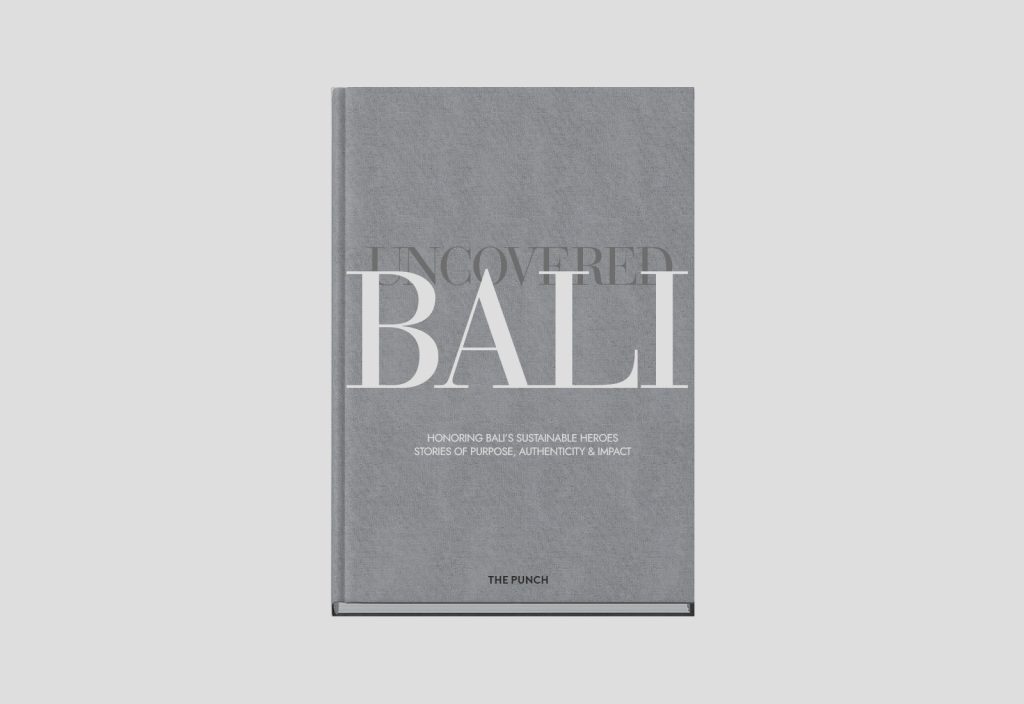
EXPLORE THE FULL STORY IN UNCOVERED BALI BOOK
Uncovered Bali is a collective project showcasing the sustainable journeys of carefully selected Bali businesses to a global audience. Each story highlights the unique impact these enterprises have on preserving Bali’s cultural and environmental heritage while driving positive change. Through this project, we aim to inspire global leaders, travelers, and communities to embrace more sustainable practices and appreciate the powerful role that local businesses play in shaping a better future.
EXPLORE THE PUNCH

